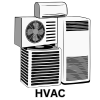
Here are the Top 10 Mistakes Car Owners Commonly Make, explained in detail — including how they affect your car’s performance, safety, and long-term cost.
In this article:
- Top 10 Mistakes Car Owners Commonly Make
- 1. Ignoring Regular Oil Changes
- 2. Neglecting Coolant and Overheating Issues
- 3. Letting the Battery Go Weak
- 4. Skipping Car Washes (Especially in Winter)
- 5. Ignoring Dashboard Warning Lights
- 6. Neglecting Tire Pressure and Alignment
- 7. Using Cheap or Incorrect Parts
- 8. Using the Wrong Fuel Type
- 9. Delaying Routine Maintenance
- 10. Poor Driving Habits
- Other courses:
Top 10 Mistakes Car Owners Commonly Make
1. Ignoring Regular Oil Changes
Why it’s a mistake:
Engine oil lubricates moving parts, reduces friction, and removes contaminants. Skipping oil changes causes sludge buildup and increases engine wear.
Impact:
- Reduced fuel efficiency
- Overheating
- Potential engine seizure
Tip: Change oil every 5,000–7,500 miles (or as your manual suggests). Always check oil levels monthly.
2. Neglecting Coolant and Overheating Issues
Why it’s a mistake:
Coolant keeps the engine temperature stable. Low or old coolant can’t dissipate heat properly.
Impact:
- Engine overheating
- Warped cylinder heads
- Costly engine replacement
Tip: Flush and replace coolant every 2–3 years; monitor the temperature gauge regularly.
3. Letting the Battery Go Weak
Why it’s a mistake:
Batteries degrade faster when terminals are corroded or if the car isn’t driven regularly.
Impact:
- Starting problems
- Electrical malfunctions
Tip: Clean battery terminals and drive at least once a week. Replace batteries every 3–5 years.
4. Skipping Car Washes (Especially in Winter)
Why it’s a mistake:
Dirt, salt, and grime eat into paint and metal.
Impact:
- Rust formation
- Reduced resale value
Tip: Wash your car regularly, including undercarriage, and wax every few months.
5. Ignoring Dashboard Warning Lights
Why it’s a mistake:
Dashboard lights (Check Engine, ABS, Tire Pressure, etc.) are early warnings of deeper issues.
Impact:
- Small problems become major repairs
Tip: Don’t ignore lights — get diagnostics done ASAP to prevent expensive damage.
6. Neglecting Tire Pressure and Alignment
Why it’s a mistake:
Incorrect tire pressure affects handling, fuel economy, and wear patterns. Misalignment adds uneven stress.
Impact:
- Reduced gas mileage
- Poor traction and braking
- Premature tire wear
Tip: Check tire pressure monthly and alignment every 6–12 months or after hitting potholes/curbs.
7. Using Cheap or Incorrect Parts
Why it’s a mistake:
Low-quality aftermarket parts may not meet manufacturer specs.
Impact:
- Poor fitment or failure
- Voided warranty
Tip: Use OEM (Original Equipment Manufacturer) or reputable brands whenever possible.
8. Using the Wrong Fuel Type
Why it’s a mistake:
Using lower-octane or incorrect fuel can cause knocking or damage fuel injectors and sensors.
Impact:
- Decreased performance
- Potential engine damage
Tip: Always follow your car’s manual — especially for turbocharged or high-performance engines.
9. Delaying Routine Maintenance
Why it’s a mistake:
Many owners skip “minor” maintenance like air filters, brake fluid, and spark plugs.
Impact:
- Reduced performance and safety
- Higher long-term repair costs
Tip: Stick to the manufacturer’s maintenance schedule — it saves thousands in the long run.
10. Poor Driving Habits
Why it’s a mistake:
Aggressive acceleration, sudden braking, and riding the clutch (manual cars) all wear components prematurely.
Impact:
- Higher fuel use
- Faster brake and transmission wear
Tip: Drive smoothly and anticipate traffic flow. It’s safer and more efficient.
Bonus Tip: Not Reading the Owner’s Manual
Your car’s manual contains vital information about oil type, tire pressure, maintenance intervals, and warning indicators. Skipping it can lead to costly mistakes.
Other courses:



